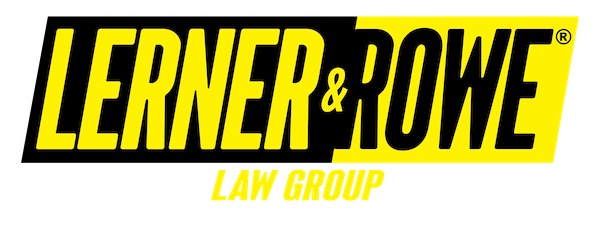Car Loans & Bankruptcy
If you’re thinking about filing for bankruptcy, you may be wondering what will happen to your car in the process. Or maybe you’ve already fallen so far behind on your monthly payments that you’re on the verge of losing your vehicle. The Arizona bankruptcy attorneys at Lerner and Rowe Law Group explain how to avoid repossession of your car and everything else you need to know about your bankruptcy and car loans.
Can You File Bankruptcy and Keep Your Car?
Depending on the type of personal bankruptcy you file, you may be able to keep your car after bankruptcy proceedings have ended. In other cases, though, you may be required to surrender your car in order to pay back some of your creditors. Let’s take a look at the different types of bankruptcy chapters to see how each one affects car loans.
Chapter 7 Bankruptcy and Car Loans

A Chapter 7 bankruptcy is a good option for those who want to eliminate the highest amount of debt possible in the bankruptcy process. Unsecured debt, such as credit cards, personal loans, medical bills, and other past due bills, are often relatively easy to discharge, making those with these kinds of debts uniquely suited to filing Chapter 7. To qualify, you’ll have to prove that your monthly income is no greater than the median income in your area or that your debts are truly unaffordable.
When filing for bankruptcy, it’s important to keep in mind that Chapter 7 is often referred to as a liquidation bankruptcy—meaning that your designated bankruptcy trustee may sell your assets in order to pay off as many creditors as possible before discharging the rest of your debt.
That being said, when it comes to Chapter 7 bankruptcy and car loans, there are ways to keep your car. If your debt stems from other sources and not your car loan itself—that is to say, your payments are current—bankruptcy’s automatic stay will protect your vehicle in the short term. After completing your bankruptcy filing, you can enter a reaffirmation agreement to indicate that you intend to continue making payments on your vehicle.
If your car payment is not current, you may still be able to negotiate with your lender to modify your loan agreement to include missed payments or make a lump sum payment. Loan issuers are not required to submit to this request, although an Arizona bankruptcy attorney may be able to help in the negotiation process. Thanks to the Arizona Motor Vehicle Exemption, you may also exempt up to $6,000 in equity in one car which may allow you to retain possession of it.
Chapter 13 Bankruptcy and Car Loans
Chapter 13 bankruptcies differ from Chapter 7 in that the end result is a repayment plan spanning three to five years. Some debts may still be discharged, but the goal is to retain as many assets as possible while restructuring existing debt.
This makes keeping your car in a Chapter 13 bankruptcy a much more streamlined process, since you’ll already be creating a repayment plan for your other debts. If you’re behind on your car payments, you may be able to make up some or all of the deficit by spreading out the payments over those three to five years.
There is another option for retaining your vehicle in a Chapter 13 bankruptcy called a cramdown. In this process, a secured loan balance (such as a car loan) is reduced according to the actual fair market value of the car. For example, if your car is worth $10,000 but your outstanding loan amount is $15,000, a cramdown would treat the $5,000 balance over the car’s actual value as unsecured debt to be discharged.
Lerner and Rowe Law Group Can Help Save Your Car
Filing for bankruptcy doesn’t necessarily mean losing your car. A Lerner and Rowe Law Group bankruptcy attorney can help you choose which personal bankruptcy is right for you, guide you through the process, and maximize your exemptions and debt elimination.
Contact us today from anywhere in Arizona by calling 602-667-7777, chat with a live representative online, or submit your case details now using our secure contact form. Don’t wait—start investing in your financial future today. We offer affordable payment plans.

